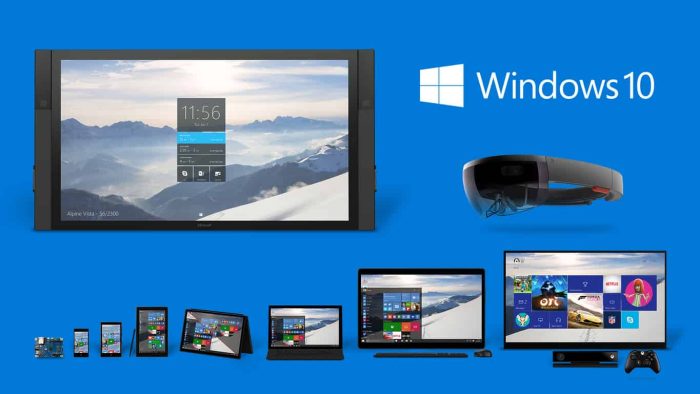Microsoft on Windows 10 app momentum: "there will be more traction"
4 min. read
Published on
Read our disclosure page to find out how can you help Windows Report sustain the editorial team. Read more

There is no question that Microsoft is putting its all into Windows 10. With this being the “last” version of Windows, Microsoft is looking to change its philosophy of its popular desktop OS, creating the paradigm of Windows as a service. This service is poised to span desktops, tablets, mobile phones, Xbox, HoloLens and IoT, but a universal OS can only be as useful as the software made for it. As such, with Windows 10, developers can create a single app that can run across all of its devices: Windows Universal Apps. The question is, are developers going to buy into this after the failures of Windows 8?
During a recent phone interview with Microsoft’s Developer Evangelism Chief, Steve Guggenheimer, Zdnet’s Mary Jo Foley had the opportunity to learn what Microsoft thinks about its Universal Windows app platform.
It takes a while after you get the platform out there to work with developers to get the momentum going.
As (Windows 10) usage goes up, it will be a self-fulfilling place,” he said. “Our (developer) conversations right now are proactive. But going forward, there will be more traction.
To say the least, Microsoft has gained some traction. With companies such as Facebook (and its subsidiary, Instagram), Netflix, Bank of America, Pandora, Uber, and Reddit all creating (or have already created) Universal Windows apps, many developers are already seeing a future with Windows 10. Since Windows 10’s release in July, we have seen at last count over 120 million upgrade to the latest OS, about 10% of Microsoft’s goal of 1 billion Windows 10 devices running the software in the next 2 to 3 years. I believe it is safe to say Microsoft is off to a decent start, but what is the magic number, especially when it comes to Windows mobile?
In Mary Jo’s interview with Guggenheimer, the Redmond advocate went on to say that Microsoft is working with developers to bring the apps people want to its Windows 10 Mobile platform.
It doesn’t matter where they (developers) start. The core work is done for all the (Windows 10) platforms. If you’re building for 10, it’s already done for phone. “A true Windows 10 (UWP) app is a phone app. It’s up to us (Microsoft) to get devices in market that are unique and differentiated for the phone.
Granted, the benefit of Universal apps is that the core code for any program is used for all Windows 10 devices, Guggenheimer makes the process seem easier than it truly is. Developers still have to optimize their apps for mobile use and release them through the Windows store. In other words, just because a company creates a Windows 10 desktop program, that does not mean it will natively run on Windows 10 mobile. Univeral apps make the process of creating apps to span multiple devices infinitely easier than before, but it is does not guarantee Windows Mobile apps.
In addition to Microsoft attempting to make developing native Windows 10 apps easy, Microsoft also made the push to make Web, iOS, and Android apps easy to port as well. Since then, Microsoft’s Android bridge, Astoria, has been halted indefinitely, while there has been little movement from developers in regards to porting their iOS (project Islandwood) and Web apps to Windows 10 Mobile.
Over all, Microsoft still has its work cut out for them. It is nice to see that those over at Redmond are at least confident in their ability to attract more developers, only time will tell if their efforts will pay off. As a Windows 10 Mobile user myself (by choice) I truly hope that Microsoft is able to attract developers to its mobile platform. 6 years after Microsoft reinvented its mobile identity, the lack of support from major companies like Google (in the form of apps such as YouTube, Gmail, Google maps, etc. which are all found on iOS devices), is still alarming. After all, with out apps Windows Mobile has little hope of surviving.
What do you think Microsoft needs to do to ensure developers code for Windows 10 Mobile? Let us know in the comment below.








User forum
0 messages